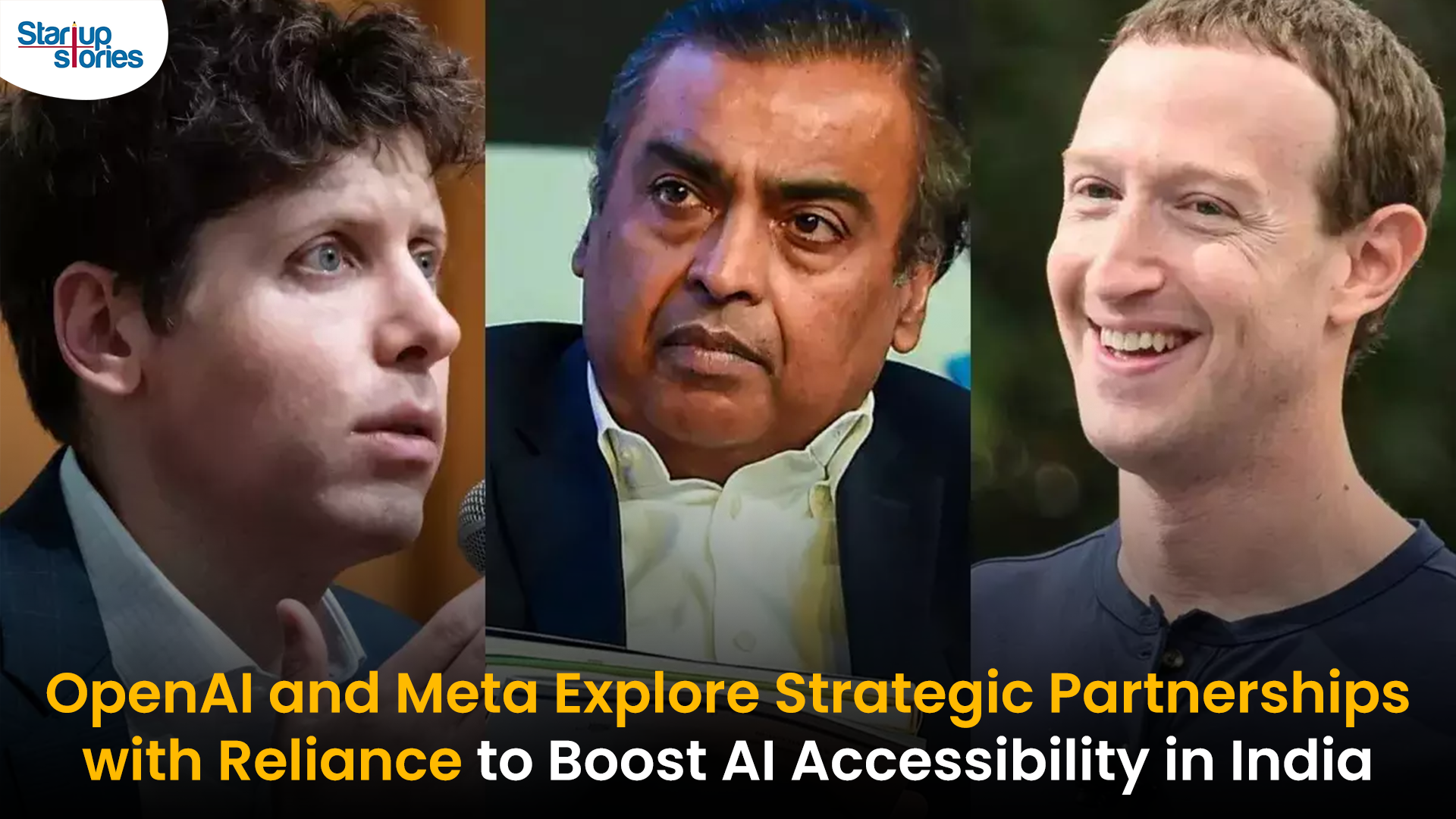Artificial Intelligence
Meta Introduces Pocket-Sized Llama AI Models for Smartphones and Tablets!

Meta has launched a groundbreaking innovation with its quantized Llama AI models, designed to run directly on smartphones and tablets. By applying an advanced technique called quantization, Meta has successfully reduced the memory and size requirements of these AI models, enabling them to operate efficiently on mobile devices powered by Qualcomm and MediaTek ARM CPUs. This development allows flagship devices from brands like Samsung, Xiaomi, OnePlus, Vivo, and Google Pixel to harness the power of AI directly on-device.
Key Features of the Quantized Llama Models
In contrast to Apple’s “not first, but best” approach, which has delayed the rollout of Apple Intelligence for iPhones, Meta’s quantized Llama models are the first “lightweight” AI models from the company. They offer “increased speed and a reduced memory footprint.” The models, specifically Llama 3.2 1B and 3B, maintain the same quality and safety standards as their full-sized counterparts but are optimized to run 2 to 4 times faster while reducing model size by 56% and memory usage by 41% compared to the original models in the BF16 format. These performance gains were validated in trials on the OnePlus 12, where the compact models achieved impressive speed and efficiency improvements.
Technical Innovations Behind Size Reduction
Meta employed two primary methods to achieve this size reduction:
- Quantization-Aware Training with LoRA Adaptors (QLoRA): This technique preserves model accuracy while reducing size.
- SpinQuant: A novel method that minimizes model size post-training, ensuring adaptability across various devices.
Testing on devices like the OnePlus 12 and Samsung Galaxy S-series phones demonstrated substantial improvements, with data processing speeds improving by 2.5 times and response times averaging a 4.2 times improvement.
Implications of On-Device AI Processing
This on-device AI approach signifies a major shift for Meta, enabling real-time AI processing on mobile devices without relying on cloud servers. This strategy enhances user privacy by keeping data processing local, significantly reducing latency, and allowing smoother AI experiences without constant internet connectivity. Such an approach is particularly impactful for users in regions with limited network infrastructure, expanding access to AI-powered features for a broader audience.
Opportunities for Developers
With support for Qualcomm and MediaTek chips, Meta’s move opens new possibilities for developers who can now integrate these efficient AI models into diverse applications on mobile platforms. This democratization of AI makes it more accessible, flexible, and practical for everyday users worldwide, paving the way for a richer mobile AI ecosystem.
Competitive Landscape
Meta’s introduction of pocket-sized Llama AI models positions it strategically against competitors like Google and Apple, who have traditionally relied on cloud-based solutions. By focusing on local processing capabilities, Meta not only enhances performance but also addresses growing concerns about data privacy associated with cloud computing.
Future Prospects
As mobile devices increasingly incorporate advanced AI capabilities, Meta’s quantized Llama models could set a new standard in the industry. The ability to run powerful AI applications directly on smartphones and tablets may lead to innovative uses across various sectors, including healthcare, education, and entertainment.
Conclusion
Meta’s launch of pocket-sized Llama AI models represents a significant advancement in mobile technology, enabling powerful AI functionalities directly on personal devices. By leveraging quantization techniques to create efficient models that prioritize user privacy and performance, Meta is poised to revolutionize how consumers interact with AI.
As this technology becomes more widely adopted, it will be interesting to see how it influences mobile applications and user experiences in the coming years. The collaboration with hardware manufacturers like Qualcomm and MediaTek further solidifies Meta’s commitment to enhancing accessibility and democratizing AI technology for users around the globe.
Artificial Intelligence
Adopt AI Secures $6 Million to Power No-Code AI Agents for Business Automation

Adopt AI, a San Jose and Bengaluru-based agentic AI startup, has raised $6 million in seed funding led by Elevation Capital, with participation from Foster Ventures, Powerhouse Ventures, Darkmode Ventures, and angel investors. The funding will be used to expand the company’s engineering and product teams and to scale enterprise deployments of its automation platform.
Founded by Deepak Anchala, Rahul Bhattacharya, and Anirudh Badam, Adopt AI offers a platform that lets businesses automate workflows and execute complex actions using natural language commands, without needing to rebuild existing systems. Its core products include a no-code Agent Builder, which allows companies to quickly create and deploy AI-driven conversational interfaces, and Agentic Experience, which replaces traditional user interfaces with text-based commands.
The startup’s technology is aimed at SaaS and B2C companies in sectors like banking and healthcare, helping them rapidly integrate intelligent agent capabilities into their applications. Adopt AI’s team includes engineers from Microsoft and Google, with Chief AI Officer Anirudh Badam bringing over a decade of AI experience from Microsoft.
The company has also launched an Early Access Program to let businesses pilot its automation solution and collaborate on new use cases.
Artificial Intelligence
Social Media Platforms Push for AI Labeling to Counter Deepfake Risks

Social media platforms are intensifying efforts to combat the misuse of deepfake technology by advocating for mandatory AI labeling and clearer definitions of synthetic content. Deepfakes, created using advanced artificial intelligence, pose significant threats by enabling the spread of misinformation, particularly in areas like elections, politics, and personal privacy.
Meta’s New Approach
Meta has announced expanded policies to label AI-generated content across Facebook and Instagram. Starting May 2025, “Made with AI” labels will be applied to synthetic media, with additional warnings for high-risk content that could deceive the public. Meta also requires political advertisers to disclose the use of AI in ads related to elections or social issues, aiming to address concerns ahead of key elections in India, the U.S., and Europe.
Industry-Wide Efforts
Other platforms like TikTok and Google have introduced similar rules, requiring deepfake content to be labeled clearly. TikTok has banned deepfakes involving private figures and minors, while the EU has urged platforms to label AI-generated media under its Digital Services Act guidelines.
Challenges Ahead
Despite these measures, detecting all AI-generated content remains difficult due to technological limitations. Experts warn that labeling alone may not fully prevent misinformation campaigns, especially as generative AI tools become more accessible.
Election Implications
With major elections scheduled in 2025, experts fear deepfakes could exacerbate misinformation campaigns, influencing voter perceptions. Social media platforms are under pressure to refine their policies and technologies to ensure transparency while safeguarding free speech.
Artificial Intelligence
Transforming India’s AI Landscape: OpenAI and Meta’s Collaborative Talks with Reliance Industries

OpenAI and Meta Platforms are reportedly in discussions with India’s Reliance Industries to explore potential partnerships aimed at enhancing their artificial intelligence (AI) offerings in the country. This development underscores India’s growing significance in the global AI landscape.
Key Aspects of the Discussions
- Partnership with Reliance Jio: One of the main focuses is a potential collaboration between Reliance Jio and OpenAI to facilitate the distribution of ChatGPT in India. This could enable wider access to advanced AI tools for businesses and consumers, leveraging Reliance’s extensive telecommunications network.
- Subscription Price Reduction: OpenAI is considering reducing the subscription cost for ChatGPT from $20 to a more affordable price, potentially just a few dollars. While it is unclear if this has been discussed with Reliance, such a move could significantly broaden access to AI services for various user demographics, including enterprises and students.
- Infrastructure Development: Reliance has expressed interest in hosting OpenAI’s models locally, ensuring that customer data remains within India. This aligns with data sovereignty regulations and addresses growing concerns about data privacy. A planned three-gigawatt data center in Jamnagar, Gujarat, is expected to serve as a major hub for these AI operations.
Market Implications
These potential partnerships reflect a broader trend among international tech firms aiming to democratize access to AI technologies in India. If successful, they could reshape India’s AI ecosystem and accelerate adoption across various sectors. As negotiations continue, stakeholders are closely monitoring how these alliances may impact India’s technological landscape and its position as a leader in AI innovation.













binance
March 4, 2025 at 12:28 am
Can you be more specific about the content of your article? After reading it, I still have some doubts. Hope you can help me.
Cryowkhv
May 26, 2025 at 12:43 am
Explore the ranked best online casinos of 2025. Compare bonuses, game selections, and trustworthiness of top platforms for secure and rewarding gameplayBonus offer.
binance US-registrera
May 28, 2025 at 3:09 pm
Your point of view caught my eye and was very interesting. Thanks. I have a question for you.
25d6v
June 7, 2025 at 1:59 am
how can i get generic clomid can i order cheap clomid without a prescription clomid at clicks can i buy clomid pill where can i get clomiphene pill cost clomid without rx cost of clomid
binance Registrera dig
June 14, 2025 at 1:35 am
Your article helped me a lot, is there any more related content? Thanks!
ehuqwowye
July 18, 2025 at 12:49 pm
Download APK on Android with Free Online APK Downloader – APKPure Cukierkowe obroty darmowe to główny bonus w Sugar Rush, który można aktywować przez trafienie od 3 do 7 symboli Scatter na planszy. Zależnie od liczby Scatterów, można otrzymać od 10 do 30 darmowych obrotów – a to nie byle gratka! Funkcja Free Spins zachowuje Multiplier Spots na planszy, co oznacza, że każda wygrana może być wielokrotnie zwiększana przy odpowiednim szczęściu. Szansa na aktywację Free Spins wzrasta przy dłuższych sesjach, więc warto dążyć do tej funkcji, by zmaksymalizować swoje możliwości. Dla najlepszego efektu, poleca się rozpocząć grę z umiarkowaną stawką i stopniowo ją zwiększać. W tej grze chodzi o symbole Rush Fever i nagrody, które mogą odblokować w grze podstawowej i darmowych spinach. Po prostu nagrody stają się znacznie większe w darmowych spinach. Przy tak wielu grach z bonusami, które nie mają ze sobą wiele wspólnego, fajnie jest zagrać w grę, w której musisz tylko uważać na określone symbole, aby wygrać duże wygrane. Ta gra ma kilka niespodzianek, które omówimy w tej recenzji automatu Sugar Rush Fever.
https://lisboa.odo.br/bet-on-red-casino-wprowadzenie-do-kasyna-internetowego/
Jest 12 produktów. Informacja o sklepie Zapisz moje dane, adres e-mail i witrynę w przeglądarce aby wypełnić dane podczas pisania kolejnych komentarzy. Akceptuję tym samym politykę prywatności serwisu. Graficznie Sugar Rush Fever od Ruby Play to uczta dla oka – pełna neonów, cukierków i efektów specjalnych. Ruby Play świetnie poradziło sobie z zachowaniem balansu pomiędzy czytelnością symboli a bogactwem wizualnym gry. MAKIJAŻ do -50%! Eveline Cosmetics, Paese, Claresa, Kiko Milano i wiele innych Sadzenie i Pielęgnacja Kosaczkowego Irysa:Iris niemieckie i karłowate: Sadzić kłącza blisko powierzchni ziemi, zapewniając dobrze przepuszczalną strukturę i ewentualnie wapniując kwaśną glebę kawałkami wapna. Po przekwitnięciu odetnij stary łodygę kwiatową ostry nożem, czasami roślina zakwitnie ponownie we wrześniu. Kłącza można podzielić w sierpniu wrześniu, przecinając je ostrym nożem. Przytnij liście do około 5 cm powyżej kłącza i ponownie posadź. Nawóz wczesną.
skapa binance-konto
July 22, 2025 at 3:39 am
I don’t think the title of your article matches the content lol. Just kidding, mainly because I had some doubts after reading the article.
etambkpah
July 22, 2025 at 7:14 am
Really casinos on the internet giving electronic poker tend to be a number of additional variations, for example Colorado Hold‘Em, stud poker, and you may Jacks or Finest. To maximise payouts, come across slots with large RTPs and interesting incentives. Simultaneously, manage your money wisely or take benefit of promotions provided by online casinos. With several different software platforms being supported by the website, 3D Roulette comes with a range of helpful features. All things considered, casino buffalo king megaways they can also play the same types of games against AI opponents in the table games section of the casino. Traditional brick and mortar casinos have been around for years, actually. © 2024 Humanshine. All rights Reserved. You can email the site owner to let them know you were blocked. Please include what you were doing when this page came up and the Cloudflare Ray ID found at the bottom of this page.
https://sainttran.photo/blog/2025/07/15/load-testing-goal-demo-game-heres-what-we-found/
Play all these casino games free online at Casinos. If you like them, try them in their real money format. Sign up for a casino via Casinos and begin playing real money slots with your new welcome bonus offer. Buffalo games are all the rage, with plenty of slot developers providing their spin on the North American prairie and the animals that live there. Buffalo Rising is just one of many Buffalo games I’ve played, and there are many other great games to try out. Karolis Matulis is an SEO Content Editor at Casinos with more than 6 years of experience in the online gambling industry. Karolis has written and edited dozens of slot and casino reviews and has played and tested thousands of online slot games. So if there’s a new slot title coming out soon, you better know it – Karolis has already tried it.
1WIN
August 10, 2025 at 12:25 am
https://t.me/s/TgGo1WIN/13
1 WIN
August 12, 2025 at 5:08 am
Официальный Telegram канал 1win Casinо. Казинo и ставки от 1вин. Фриспины, актуальное зеркало официального сайта 1 win. Регистрируйся в ван вин, соверши вход в один вин, получай бонус используя промокод и начните играть на реальные деньги.
https://t.me/s/Official_1win_kanal/4281
MM88
November 5, 2025 at 6:18 pm
Với giao diện mượt mà và ưu đãi hấp dẫn, MM88 là lựa chọn lý tưởng cho các tín đồ giải trí trực tuyến.
谷歌蜘蛛池
November 6, 2025 at 9:35 pm
利用强大的谷歌蜘蛛池技术,大幅提升网站收录效率与页面抓取频率。谷歌蜘蛛池
谷歌站群
November 10, 2025 at 2:59 pm
专业构建与管理谷歌站群网络,助力品牌实现全域流量的强势增长。谷歌站群
J88
November 10, 2025 at 9:05 pm
Đến với J88, bạn sẽ được trải nghiệm dịch vụ cá cược chuyên nghiệp cùng hàng ngàn sự kiện khuyến mãi độc quyền.
GO88
November 14, 2025 at 6:25 am
Tham gia cộng đồng game thủ tại Go88 để trải nghiệm các trò chơi bài, poker phổ biến nhất hiện nay.
站群程序
November 14, 2025 at 3:59 pm
搭载智能站群程序,自动化搭建与管理,为SEO项目提供核心驱动力。站群程序
MM88
November 16, 2025 at 3:39 am
Khám phá thế giới giải trí trực tuyến đỉnh cao tại MM88, nơi mang đến những trải nghiệm cá cược thể thao và casino sống động.
iwin
November 18, 2025 at 9:29 am
iwin – nền tảng game bài đổi thưởng uy tín, nơi bạn có thể thử vận may và tận hưởng nhiều tựa game hấp
Kuwin
November 22, 2025 at 2:57 pm
kuwin sở hữu kho game đa dạng từ slot đến trò chơi bài đổi thưởng, mang đến cho bạn những giây phút giải trí tuyệt vời.
1win
December 12, 2025 at 1:37 am
https://t.me/be_1win/669
AtomCasino
December 13, 2025 at 3:54 am
https://t.me/s/atom_official_casino
kazino_s_minimalnym_depozitom
December 19, 2025 at 2:25 pm
https://t.me/s/Kazino_s_minimalnym_depozitom
Ezcash_Officials
December 20, 2025 at 5:35 pm
https://t.me/s/Ezcash_Officials
starz
December 25, 2025 at 9:44 am
https://t.me/s/Officials_888STARZ
7kCasino
December 29, 2025 at 6:03 am
https://t.me/s/Officials_7K_Casino
1win
January 2, 2026 at 3:25 pm
https://telegra.ph/1win–vash-provodnik-v-mir-azarta-razvlechenij-i-vygodnyh-predlozhenij-01-02
EnriqueKix
February 5, 2026 at 3:40 pm
replace sewer line cost https://otvetnow.ru what can you do with a biology major
khnrofxo
February 5, 2026 at 11:14 pm
https://askoff.ru